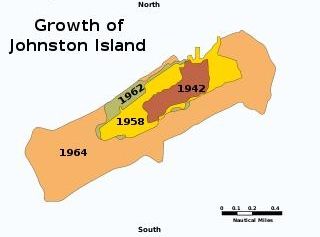
Publisher:
Bonnie King
CONTACT:
Newsroom@Salem-news.com
Advertising:
Adsales@Salem-news.com

~Truth~
~Justice~
~Peace~
TJP
Mar-29-2010 00:44

 TweetFollow @OregonNews
TweetFollow @OregonNews
News for Veterans Exposed to Herbicides Outside Vietnam
Salem-News.comEven if you did not serve in Vietnam, you can still apply for service-connected benefits if you were exposed to an herbicide while in the military which you believe caused your disease or injury.
 Courtesy: Wikipedia |
(WASHINGTON D.C.) - Herbicides were used by the U.S. military to defoliate military facilities in the U.S. and in other countries as far back as the 1950s.
This page contains information from the Department of Defense (DoD) on projects to test, dispose of, or store herbicides in the U.S.
Even if you did not serve in Vietnam, you can still apply for service-connected benefits if you were exposed to an herbicide while in the military which you believe caused your disease or injury.
If you have a disease which is on the list of diseases which VA recognizes as being associated with Agent Orange, the VA requires:
- a medical diagnosis of a disease which VA recognizes as being associated with Agent Orange (listed below),
- competent evidence of exposure to a chemical contained in one of the herbicides used in Vietnam (2,4-D; 2,4,5-T and its contaminant TCDD; cacodylic acid; or picloram), and
- competent medical evidence that the disease began within the deadline for that disease (if any).
If you have a disease which is not on the list of diseases which VA recognizes as being associated with Agent Orange, VA requires:
- competent medical evidence of a current disability;
- competent evidence of exposure to an herbicide during military service; and
Agent Orange at Gulfport Naval Construction Batallion Center ... 2 May 06 - Johnson Atoll to be used for Contaminated Waste
* DoD has confirmed that Agent Orange was used from April 1968 up ... Johnston Atoll (1972-197 was used for unused AO storage. ... McLane, Newman, Williamson, Baker, Dean, Johnson ...
 Click image to expand the map and view the Wikipedia Page |
The Johnston Atoll area was used during the 1950s and 1960s as an American nuclear weapons test site - for both above-ground and underground nuclear tests.
It was also used for a rocket launch site for some of the first American spy satellites. Later on, it became the site of a chemical weapons depot and the site of the Johnston Atoll Chemical Agent Disposal System (JACADS).
All of the chemical weapons that were once stored on Johnston Island have been incinerated, and that process was completed some years ago.
Between 1958 and 1975, several scientific sounding rockets were launched from Johnston Island.[3] There were also several nuclear test missiles that were launched from Johnston Island in 1962 during the "Operation Dominic" series of nuclear tests, from a launchpad at 16°44′13″N 169°31′26″W / 16.7370°N 169.5240°W / 16.7370; -169.5240.
Twelve thermonuclear warheads were exploded in all, one of which failed when the PGM-17_Thor carrying it failed to launch and scattered plutonium debris over the island.
Afterwards, the radioactive debris and soils were placed in a 25 acre landfill on the island, along with residue from Agent Orange containers returned from Southeast Asia after the Vietnam War, PCBs, PAHs, dioxins, and sarin nerve gas from the Soviet Union and East Germany.
Growth of Johnson Island by coral dredging.
In 1963, the United States Senate ratified the Limited Test Ban Treaty, which contained a provision known as "Safeguard C". Safeguard C was the basis for maintaining Johnston Atoll as a "ready to test" above ground nuclear testing site should atmospheric nuclear testing ever be deemed to be necessary again.
In 1993, Congress appropriated no funds for the Johnston Atoll "Safeguard C" mission, bringing it to a termination. Congress redefined the island's military mission as that of the storage and destruction of chemical weapons.
Please see: bluewaternavy.org/contambase.htm
Also visit: vetshome.com/agent_orange_use_outside_of_viet.htm
Articles for March 28, 2010 | Articles for March 29, 2010 | Articles for March 30, 2010
Quick Links
DINING
Willamette UniversityGoudy Commons Cafe
Dine on the Queen
Willamette Queen Sternwheeler
MUST SEE SALEM
Oregon Capitol ToursCapitol History Gateway
Willamette River Ride
Willamette Queen Sternwheeler
Historic Home Tours:
Deepwood Museum
The Bush House
Gaiety Hollow Garden
AUCTIONS - APPRAISALS
Auction Masters & AppraisalsCONSTRUCTION SERVICES
Roofing and ContractingSheridan, Ore.
ONLINE SHOPPING
Special Occasion DressesAdvertise with Salem-News
Contact:AdSales@Salem-News.com

googlec507860f6901db00.html



Terms of Service | Privacy Policy
All comments and messages are approved by people and self promotional links or unacceptable comments are denied.
[Return to Top]
©2025 Salem-News.com. All opinions expressed in this article are those of the author and do not necessarily reflect those of Salem-News.com.